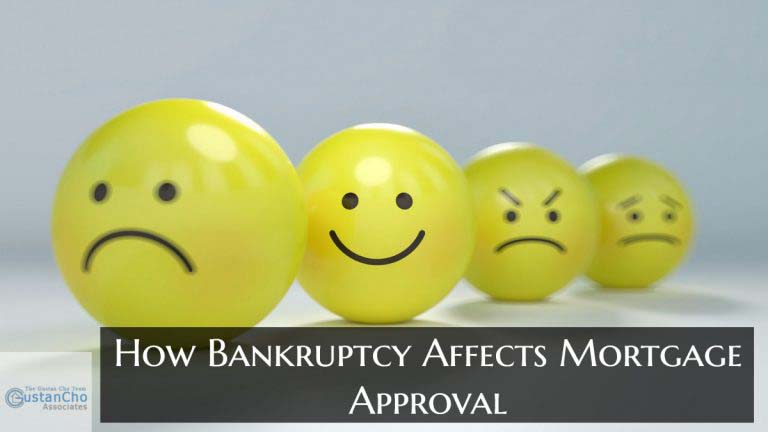This guide covers why opening new credit cards raise scores to qualify and get approved for mortgage loan approval. The reason why opening new credit cards raise scores and help borrowers qualify for a home loan is new credit tradelines offsets prior bad credit. Dale Elenteny, a senior mortgage loan originator at Gustan Cho Associates said the following about why opening new credit cards raise scores for mortgage approval:
With timely payments on your new secured credit cards, many companies will often increase your credit limit without asking for an additional deposit.
After the coronavirus pandemic is under control and the economy has stabilized, the home purchase market is expected to be strong. The global coronavirus pandemic has impacted the stock market, real estate and mortgage industries, and the economy. However, Americans still need shelter. In the following paragraphs, we will cover why opening new credit cards raise scores for mortgage approval.
Improving Your Credit Mix
Instead of simply paying down debts, you can lower that ratio by adding new cards. You increase your total available credit when you add an account with a high credit limit. If you keep the same $3,000 balance, your new utilization drops to 40%. Dale Elenteny, a senior mortgage loan originator at Gustan Cho Associates said the following about why opening new credit cards raise scores for mortgage approval:
Mortgage lenders like to see utilization around 30% or lower, so this change can quickly boost your score when you need it most.
Another reason why new accounts can help is credit mix. Credit scoring models like to see various credit types, not just credit cards or installment loans. Lenders may see you as a risk if your credit report shows only student loans and a single car loan. A new credit card can add a revolving account to your mix, rounding it out. This improvement to your credit profile can nudge your score higher. Remember to keep the new card in good standing and make on-time payments.
Boost Your Credit, Boost Your Approval Odds
Learn why opening new credit cards can actually raise your score for a mortgage.
Temporary Hard Inquiry Considerations
One of the few downsides to opening a new credit card is the hard inquiry on your report. Each new card application generates this inquiry, which can lower your score by a few points. However, this effect is temporary.
Most models add the inquiry to your score within a few months. You’ll lose those points if you keep your utilization low and maintain on-time payments.
Given that the inquiry is a small risk compared to the longer-term gain to your score, the trade-off is worth it for most future homeowners.
Strategic Timing for Mortgage Approval
If you know you’ll get a mortgage in the next few months, now is a great time to open one or two new credit cards. Use them for small, manageable purchases, and pay them off in full each month. This strategy builds your credit profile while keeping your utilization low. By the time you go to the lender, your report shows improved utilization, a better credit mix, and a more favorable score for mortgage approval.
Opening new credit cards can feel intimidating when preparing for a mortgage. However, when done with a clear plan, it can lead to a stronger credit profile and better approval chances.
Stay organized, manage your spending carefully, and monitor your credit report. Using new accounts wisely is a powerful tool for savvy future homeowners. When you add a new credit card with a limit of $5,000, your total available credit rises to $10,000. If your current balance stays the same, your credit utilization drops 30%.
Why a Credit Mix Can Help You Get a Mortgage
Scoring models also pay attention to the kinds of accounts you have. A balanced mix of revolving accounts—like credit cards—and installment loans—like car or student loans—shows lenders that you understand how to manage credit. Angie Torres, the national operations director at Gustan Cho Associates said the following about why opening new credit cards raise scores for mortgage approval:
If your credit report leans heavily toward installment loans, adding that new card will diversify your profile in a good way. Lenders see a lower utilization number as a sign of responsible credit use, so FICO and VantageScore will likely reward your score.
This mix is why many people open a card before applying for a mortgage. Lenders want proof that you can handle different credit types responsibly.
How On-Time Payments Shape Your Credit Scores
Each new credit card is also a fresh chance to build a solid payment history. Since payment history makes up 35% of your FICO score, even a single new account with scheduled, on-time payments can positively boost your overall score.
When lenders notice a history of on-time payments, they see a more reliable borrower. That’s why you should open a couple of new credit cards before you apply, boosting your score for mortgage approval.
Short Dip for Long Climb
Getting a new card can drop your score a few points for a month or so because of the hard inquiry. But the lasting gains from added credit, a balanced utilization rate, and a richer credit mix usually beat that tiny setback. Those few extra points can mean better mortgage terms, lower interest rates, and big savings over the years for many buyers.
Smart Timing for Signing Up
Knowing you should open new cards and fist bumps, your score is only half the picture. Timing matters. If you’re 30 to 60 days from closing, skip the new applications; underwriters dislike sudden shifts and may call the deal a risk.
The sweet spot for opening new credit cards is at least six months before you plan to apply for a mortgage. This window gives you time for the positive effects of lower utilization and a clean payment record to show up on your credit report.
FAQ on Getting New Credit Cards to Boost Mortgage Approval Odds
Will a New Credit Card Always Give My Mortgage Score a Boost?
Not every time. When you first open a card, your score might dip due to the hard inquiry. But your score should rise as you keep your balance low and make on-time payments.
How Many New Cards Should I Get Before a Mortgage?
Stick to one or two cards that make sense for your spending. Getting too many cards at once can make lenders worry you’re trying to take on too much.
Why Do Mortgage Lenders Ask About Credit Utilization?
They want to see how much of your available credit you’re using. Lower utilization shows you’re using your credit wisely and can handle more debt responsibly.
What if I’ve Always Had High Credit Card Balances? Can a New Card Still Help?
Absolutely. When you open a new card, you boost your total available credit. Even if your existing balances stay the same, the new card lowers your overall utilization percentage, which can lift your score.
How Long Should I Wait to Apply for a Mortgage After Opening a New Credit Card?
Waiting six months is usually smart. This gives your credit report time to show on-time payments and a drop in how much credit you’re using.
Do All Credit Scoring Models Treat New Credit Cards the Same?
They’re the same. Lower credit use and a good mix of credit types help in all models, but FICO and VantageScore slightly differ in how they weigh the details.
Is There a Risk of Being Denied a Mortgage if I Get a New Credit Card Right Before Closing?
Yes. Any big change to your credit can make underwriters more cautious and could delay or even hurt your mortgage approval.
Why is Payment History on a New Credit Card So Important?
Because payment history makes up 35% of a FICO score, the more on-time payments you have, the better the boost to your score.
Will Opening a Secured Credit Card Help My Score For a Mortgage?
Yes, for sure. Secured cards count as revolving credit, so they help your utilization, your mix of credit types, and payment history.
What’s the Reason New Credit Cards Can Help My Mortgage Score?
The biggest reason is that they can lower your credit utilization, with good payment history and a better credit mix not far behind.
Down Payment Required on Home Purchase
In many instances, buying a home is cheaper than renting. Mortgage rates are now at all-time record highs. You do not need a 20% down payment to qualify for a mortgage. USDA and VA loans do not require any down payment requirements and offer 100% financing. Alex Carlucci, a senior mortgage loan originator at Gustan Cho Associates said the following about why opening new credit cards raise credit scores for mortgage approval:
Many often feel credit cards got them into trouble in the first place and cash is the best policy. Not rebuilding credit and getting new credit will often hurt consumers.
To qualify for a 3.5% down payment FHA loan, borrowers require a 3.5% down payment on a home purchase. Conventional loans require a 3% to 5% down payment. Non-QM loans require 10% to 20% down payment.
One of the most important factors when qualifying for a mortgage is the borrower’s credit scores.
Surprising Credit Hack for Homebuyers
Opening the right credit cards may improve your mortgage approval chances.
How Credit Scores Determine Mortgage Rates
Credit scores determine the amount of down payment a homebuyer needs to put down. Credit scores determine the mortgage rates. Higher credit score borrowers are less riskier borrowers under the lender’s eyes. Borrowers can easily get 700 plus credit scores after a bankruptcy as soon as six months after their bankruptcy discharge. In this article, we will discuss and cover why opening new credit cards raise scores for mortgage approval.
Why Opening New Credit Cards Raise Scores and Is Fastest Way of Rebuilding Credit
Homebuyers can qualify for a mortgage after bankruptcy. However, they need to meet the minimum credit score requirements. Consumers should start rebuilding credit after a bankruptcy as soon as possible after their discharge. Getting secured credit cards is the easiest and fastest way of rebuilding credit after bankruptcy. John Strange, a senior mortgage loan originator at Gustan Cho Associates says the following about why opening new credit cards raise scores for mortgage approval:
Many consumers often give up on getting credit after bankruptcy. They often feel there is no way in rebuilding credit after bankruptcy on their credit reports.
The reason why not having credit hurts consumers is because it suppresses your credit score. The ideal amount of secured credit cards to get after bankruptcy is three. The minimum credit limit to get is $500 limit on each card. Secured credit cards are just like traditional unsecured credit cards except you need to place a deposit to the credit card company. The amount of deposit you put down is the credit limit the company gives you.
See http://www.720creditscore.com/help/credit-cards/ for secured and/or unsecured credit card recommendations for bad credit, good credit, or excellent credit.
Importance of Establishing New Credit Tradelines When Qualifying For a Mortgage
Lenders will look at the past payment history of a borrower. Credit bureaus will derive to a consumer credit score by analyzing the type of credit, the payment pattern, utilization ratio, the longevity of the tradeline, and the ratio of timely versus late payments. The lower the credit utilization ratio, the higher the scores. The more diversified the consumer is with the types of credit they have, the higher the credit score. John Strange, a senior mortgage loan originator at Gustan Cho Associates said the following about why opening new credit cards raise credit cards for mortgage approval:
The longer the credit tradeline, the higher the credit score. The best way to have the highest credit score possible after bankruptcy is to get three major revolving credit cards.
Gustan Cho Associates Mortgage Group are experts in helping borrowers with maximizing their credit scores so they can qualify for a mortgage. Gustan Cho Associates is a five-star national mortgage company licensed in multiple states. We are the to-go lender for homebuyers who had a prior bankruptcy, foreclosure, deed in lieu of foreclosure, short sale and/or other derogatory credit. Please contact us at 800-900-8569 or text us for a faster response. Or email us at gcho@gustancho.com.
Ready to Buy a Home? Fix Your Credit First
See why lenders view new credit cards as a positive when managed correctly.








